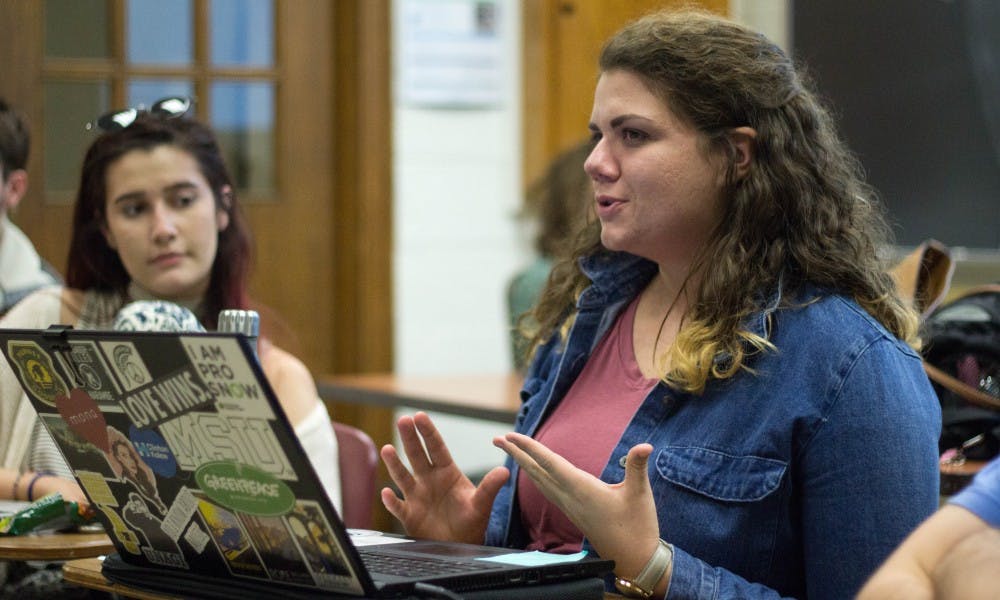MSU Greenpeace is no stranger to challenging the university's administration on the issue of sustainable energy. In 2011, student activists affiliated with the "MSU Beyond Coal" initiative sat in President Simon's office and refused to leave at closing time, culminating in the arrest of three students.
Their tactics worked. A few months after the sit-in, MSU revealed the first draft of an evolving Energy Transition Plan, which was to be edited every five years and aimed to reduce greenhouse gas emissions by 30 percent by 2015 and 65 percent by 2030. The campaign could claim a complete victory in 2016, when the T.B. Simon Power Plant stopped burning coal to power the university.
Now they're taking things a step further. Not content with their previous victory, MSU Greenpeace is now denouncing the newest version of the Energy Transition Plan as "flawed." In their view, the document, which was released in August, lacks enforceable goals and isn't transparent enough. As a result, they've launched a new campaign entitled Carbon Neutral MSU, pushing the university to eliminate greenhouse gas emissions by 2030.
Joseph Herbst, membership director for MSU Greenpeace, believes that the focus of the Energy Transition Plan is too narrow. He said that its reliance on natural gas is better than coal, but that the use of natural gas still comes with major environmental impacts. In addition, by focusing solely on what comes out of MSU's smokestacks instead of these larger impacts, the plan's stated goals don't take into account the entire process of energy production.
"There are still serious problems with fracking and methane leakage on the whole process around natural gas, " Herbst said. "It's not reducing our emissions as much as the plan says it is, it's just reducing the emissions that we see right here on campus."
MSU Greenpeace public relations coordinator Karen Troxell said this campaign's tactics will be similar to MSU Beyond Coal's. Direct actions — protests, sit-ins, and other methods of intentional confrontation — will be a primary method of creating change, alongside a petition drive targeting students and other members of the MSU community.
At the same time, the organization won't just be taking a grassroots approach and targeting students to get behind the campaign. Troxell said they will also pursue meetings with MSU trustees for more intimate conversations and appeals.
"We are, at our base, an activism group, so a big part of what we do is direct action," Troxell said. "A lot of it is choosing people in power and seeing how we can build relationships with them and sway them to our side, and show them that this is something that the student body cares about."
Asking a university of MSU's size to stop using all coal, oil and natural gas in 13 years is no small request, something even Greenpeace members understand. Despite the difficulty of the task at hand, the organization is hoping MSU is willing to take the Energy Transition Plan — something Troxell acknowledges is a solid "first step" — and expand it into an example of sustainability other universities can follow.
“We recognize that the goal of the campaign is ambitious, but Michigan State University already has a history of displaying environmental leadership,” Jackie Zarzycki, group coordinator for MSU Greenpeace, said in a press release.
MSU could not be reached for comment.
Support student media!
Please consider donating to The State News and help fund the future of journalism.
Discussion
Share and discuss “MSU Greenpeace pushing for a carbon-neutral campus by 2030” on social media.







